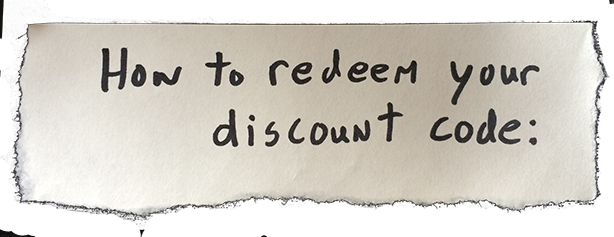











|
|
|
|
|
|







Brett James
The Drift Wars
[19.17.4.1::7743.4569.619.1D]
“No recon!”
“What?”
“No recon!” Saul’s voice was barely audible over the metallic vibrations of the ship. After three hours of traveling through the eerie calm of space, the ship had slapped against the planetary atmosphere and was skipping violently. In a few moments, Peter would make his first combat jump. He hoped it would go better than in training. His helmet still smelled faintly of vomit.
The cabin was sweltering; the hull glowed from the friction of atmospheric entry. The ship’s engine screamed, pushing them even faster.
The hull was 95 percent effective at these speeds—it would fail one time out of twenty, vaporizing the ship and its passengers. This would be unacceptable in civilian spacecraft. Only marine transports played such odds.
“You ever heard of a drop with no recon?” Saul yelled over a closed channel.
“No,” Peter shouted into his helmet mic.
“Me neither. I bet no one lives to talk about it.”
Peter knew better than to let Saul psych him out. “Command put the satellites on the other side of the planet,” he yelled back.
“Misdirection.”
“Smart.”
“Smart is being tucked away in the commandship,” Saul shouted. “I don’t see any generals lined up for this drop.”
“Dispersal altitude,” the captain said over the intercom. He was calm and relaxed, piloting the ship from ten thousand miles away.
Men stirred throughout the cabin, prepping weapons and themselves. The ship held a full regiment: twenty-four hundred men in ash-gray combat suits packed in shoulder-tight rows along the curved floor. They were all recruits, privates on their first mission. Their suits shone like they had been made this morning—all but one, that of Colonel Chiang San, who watched his men from a raised seat up front. His suit was dulled and chipped from use, and even though they were inside, the protective silver coating was down over his visor, masking his face.
Anonymous in the crowd, Peter pressed his hand to his chest, where, beneath his suit’s hard crust, hung a locket containing a curl of soft, silky hair.
Saul started to speak, but the ship’s floor fell away and wind roared through the cabin. The men, clamped in by the backs of their suits, were rotated to face the green world below. It was drawn with the clarity of distance—the sharp-edged mountains and lakes, and an ocean of jungle as soft as cotton.
The clamp behind Peter snapped open, and a blast of compressed gas shot him straight down. The other men disappeared in a blur.
Six transports screamed through the white sky overhead, their massive impulsor engines burning the air in a trail of roiling orange and black. They spit out fifteen thousand marines in five seconds, staggered just enough to avoid collision, then arced back toward the safety of space. The sky was poked with little black dots—men plummeting to the surface.
*****
The first time Peter tried out for football, the varsity players took the hopefuls out for a little bonding session. Several jugs of fiery moonshine were passed around, and then the young players, mostly freshmen, were taken to Culiver’s Gorge. The gorge had a high dirt bank that overlooked murky, green-coated water. A narrow iron pipe crossed between the banks some fifteen feet over the water. The hopefuls were told that the unwritten requirement to make the team was to walk the pipe, blindfolded. They didn’t want to, but the older boys insisted.
As his classmates hemmed and hawed, Peter stepped to the front. He figured that since he couldn’t get out of it, he might as well try to look enthusiastic. He was blindfolded, balanced on the pipe with drunken steadiness, and then pushed forward. He managed two wobbly steps before he went over the edge. Though terrified, he kept his mouth shut as he fell through the air and flopped into the water.
Not one of them made it across, but Peter was the only one who didn’t scream when he fell. Back then, that was brave. Back then, walking blindfolded across a water pipe was scary.
Now, plunging through the high atmosphere of an enemy-occupied planet, he knew that while the stakes were higher, the setup was the same: no matter how scared he felt, there was nothing to gain by showing it. Screaming wouldn’t bring the ship back; it would only make him look bad.
Peter fell freely at first, but as he descended the atmosphere thickened, pushing his arms and legs backward, and pressing against his chest as he slowed to terminal velocity. Frost crystals formed around the edge of his visor, and the wind settled to a dull rush. He brought his legs together, drew his arms to his side, and angled into a dive.
The green world approached rapidly, its topography rising as his angle lowered. Red lines drew out over his visor, the computer in his suit marking the target landing area.
He felt a jolt as he punched into the lower atmosphere, and a red light flashed in the corner of his visor: incoming fire. Below him, the green jungle faded under a gray cloud of bullets that rose to meet the men.
Peter angled his hands like fins, corkscrewing. He wiggled his fingers, weaving his body randomly and crisscrossing through the other men, who were all doing the same.
Something crashed into his back, knocking him end over end. He flailed, slapping at the air, but that only made it worse. Then his training clicked in: he tucked his arms in tight and fanned his legs to drag at the air, angling him back into his dive.
Peter was breathing hard and trembling with adrenaline. Sideways collisions were expected during evasive maneuvers, he reminded himself. Even at this speed, they were nearly always harmless.
He looked up and saw Saul flying overhead, an enormous white grin beaming through his visor. Saul had hit him on purpose. Saul was like that. Playful—bored even—no matter that they were plummeting into hostile territory at three hundred miles an hour. Peter had grown used to this attitude back in Basic Training—five intensive months meant to hone men into deadly weapons. Frankly, they’d had much greater success with Saul than Peter.
Peter turned back to the incoming storm of bullets, forcing himself to relax. Just like falling into the river, he told himself. Of course, he didn’t make the team that year. He might have impressed the older kids, but they didn’t decide who made the cut.
*****
Moments later the cloud of bullets collided with the swarm of men. Most of the bullets rattled harmlessly against the heavy armor on the marines’ shoulders and helmets; they had spent most of their power on the long climb up. The bullets were mainly intimidation anyway, broadcasting the size of the force waiting below. But they also provided cover for the rockets that followed.
Thunder came from all sides and great orange fireballs filled the sky, shattering the unlucky and knocking around the rest. The explosions came one after another, their black smoke choking out the light. Someone—or some part of someone—struck Peter’s shoulder and ricocheted away.
Sergeant Mickelson had advised them to have some sort of distraction on hand for the dive. Loud music, particularly metal, would drown out the noise of battle and pass the time. “Pornography is even better,” he said, “but it’s against policy, so don’t let me catch you.”
Neither idea appealed to Peter, so he hadn’t brought anything. Instead, he tried to think about home, and about Amber. It had been seven months since he’d seen her, seven months since he’d felt her arms around him. His memory of her had been his strength, but he couldn’t bring it up. Not while he was careening though the thick smoke and dull pounding of rockets, wondering if the next one was meant for him.
Having no other distraction, he started to hum.
*****
The explosions stopped. Peter dropped below the smoke and saw only the plush treetops as he crashed into them. A charge on his back fired with a loud bang, flipping him upright. His rocket pack roared to life, its long flame licking his feet as it strained to slow his descent.
The leafy canopy closed overhead, sealing Peter into a murky world of long, spidery tree trunks. As Peter strained to pick a clear landing site, a leg-thick tree branch caught him square in the chest. He was knocked over and his rocket drove him straight at the ground. His suit’s stabilizers tried to right him but, designed for the weightlessness of space, lacked the power.
His rocket sputtered out thirty feet from the ground; he slammed into it headfirst.
*****
The jungle floor was thick with leaves, cushioning Peter’s fall and sparing him serious injury or death—effectively the same thing this deep inside enemy territory. He scrambled out of the crater made from his own impact, ran for the cover of the nearest tree, and tucked himself into a protective ball. Shrapnel and debris drummed the ground. It tapered off after several minutes. He eased to his feet and looked around.
The trees were as straight as pencils, their white cabbagey trunks rising a hundred yards into the air, then sprouting into a green roof. Down at ground level, the trunks split and tangled together. Low scrub, like moss magnified a hundredfold, circled the trees in wreaths, wisps of steam billowing off their crowns. In the dim light, the wet ground was the color of blood and dented by debris—parts of rockets, parts of men.
Alone in the jungle, Peter felt exposed; the enemy seemed to lurk in every shadow. He retreated further into the tree, ducking into the cave of its high roots, and waited.
It was fifty long seconds before the satellites moved into place. Peter’s visor lit up with information, and he studied the translucent map that appeared in the corner. There were blue dots to indicate the other marines, but no red dots yet—the satellite’s sensors couldn’t detect the enemy through the thick foliage. It fell on the marines to dig them out here on the ground.
Peter’s regiment was spread over several dozen miles, and he was a thousand yards from the nearest friendly. The rendezvous point was a mile and a half away, labeled by a green circle. He did a quick visual inspection of his suit, then tested his arms and legs. The artificial muscles in his suit whirred smoothly.
Everything seemed okay. He drew his sidearm and crept out from his cover.
*****
The thick foliage cast dark shadows in the haze, providing the enemy ideal camouflage for an ambush. The jungle was dead quiet, with no sign of the indigenous otter-like creature that supposedly thrived there. Maybe they were hiding from the coming battle. Or maybe they had been slaughtered.
Fog condensed on Peter’s visor, making beads of water that jiggled as he walked. His suit was climate controlled, insulating him from the jungle’s heat and humidity, and its smell. The air from his tank was scentless and filtered, and gave no sense of the world around him. But his mind brought the jungle inside, the sense of danger, the presence of the Riel.
His eyes darted around, hunting for anything that seemed out of place. His suit had a battery of sensors, everything from emission scopes to wide-band motion detectors, but the dense jungle overpowered them. Even his thermal imagers were useless—the Riel were cold-blooded, so their body temperature matched that of the air around them. Despite his complex array of sensors, the best tools he had were his own eyes.
A tall, flat boulder loomed in the mist ahead. Perched on top was a short, muscular tree, its roots running down the stone like melted wax. It was exactly the sort of place where Peter would set an ambush, and he figured that a Riel sniper would think the same. He crouched low and gave the rock a wide berth, watching for a trap.
A yellow light pulsed on his visor—a warning from his Life Control System that he was breathing too quickly. The planet’s atmosphere was poisonous, so running out of air here would be as deadly as it was in the vacuum of space. Peter stopped and took slow, measured breaths. Then he saw movement in the corner of his eye. He whipped around and fired.
The impulsor ray from his pistol was invisible, but it burned a line through the air, hissing and leaving a trail of curling smoke. The gun sliced through several plants and charred the trunk of a tree, but there was no one around. The movement had only been water running down his visor. Peter cursed, dropping low and peering back at the rock, seeing nothing.
He backed up, turning a slow circle and jerking his gun from target to target. His heart thrashed wildly and the oxygen warning light turned orange, then red. Unable to control his fear, Peter sprang up and raced through trees, slashing with his arms to clear the foliage, careless of the racket he was making.
His only thought was to reach the rendezvous point and the safety of his platoon.
*****
Peter was watching his map, following his blue dot as it approached the green rendezvous point, when his legs tangled and he fell forward. He face-planted, scattering leaves and knocking into something solid. He jerked his gun out, but it was another marine, dead, half-buried from impact. Shards of red-stained metal jutted from his chest, and a stump of an arm rose as if saluting the sky.
Peter crept forward on his elbows, lay his pistol down, and pushed up to peer into the corpse’s visor. The face inside was still and ashen. Peter didn’t know him.
“I’ll shoot you my damn self, Garvey,” Mickelson snarled over the comm, “if you keep making all that goddamn noise.”
The sergeant stood over him, glaring with anger, Peter’s gun clenched in his hand. He leveled the gun at Peter’s face, his finger tightening, but then changed his mind. He let the gun drop to the ground.
“Strip off your rocket and get over here,” he said, walking away.
“Yes, sir,” Peter said. He hopped up, holstered his gun, and pulled a catch on his shoulder; the spent rocket clattered to the ground. He considered grabbing the rocket off the corpse but shied away. He piled his own on a small stack over by Mickelson; if they won the battle today, the rockets would be collected, refurbished, and reused. Peter joined the men who were already there. Their names were stenciled on their backs, but Peter recognized none of them.
As if reading his thoughts, the battle computer broadcasted a full-channel update. The regiment had arrived 48 percent operational, which was the optimistic way of saying that 52 percent of them were killed before they even reached the ground. Of Peter’s platoon, only Mickelson, Saul, Ramirez, and himself had survived the landing. Four of twelve. A thousand miles away, back on the commandship, that was just a figure on a spreadsheet. But down here they were men, like Peter, with families and friends who hoped and prayed to see them again. Now most of them would not, and the battle hadn’t even started.
The attack would go ahead as planned, no matter the casualties. There was no choice. The transports couldn’t land until the marines eliminated the Riel’s anti-ship defenses. If they could eliminate them. Only Command knew the odds, and they wouldn’t bother to tell anyone down here.
*****
Twelve men gathered at the rendezvous point, an ad hoc platoon assembled by the battle computer from those who had survived the drop. Peter fidgeted with his pistol as men trickled in, relaxing only when Saul appeared, strolling out of the jungle as if he were arriving at a party. He moved through the men, exchanging hellos and learning names. His presence calmed the others, infecting them with his air of indestructibility.
“The good news,” Saul said, settling next to Peter, “is that we landed in the middle of the regiment. That means we’re completely safe. The bad news is that we’ve got a long walk before we get ourselves killed.”
*****
Sixteen minutes after touchdown, the newly formed North-58 platoon rolled out. Their target was three and a quarter miles away, and their orders were to be there in seven minutes, so they had to hump it.
Even though this section of the jungle had been declared clear, the men stayed in formation, guns at the ready, wary of ambush. In the field, clear was a relative term. More than once, men had stumbled onto Riel encampments right in the middle of their own.
“Let the suit do the work, Garvey,” Mickelson growled. Peter’s oxygen light was glowing yellow again.
Running should be easy—he just needed to guide the artificial muscles with his own. Peter had run literally thousands of miles during Basic, but while he could remember the motions, his body seemed to have forgotten. His legs struggled against the suit, tiring him out and wasting precious air.
Thankfully, they soon reached the no-man’s land, and Mickelson motioned to slow down. “Stay low,” he warned. “The Riel see you first, you’ll never even know it.”
*****
The platoon took up an arrowhead formation with the seven general infantry marines forming a V on the perimeter and the three heavy-weaponry specialists—including Saul—just behind them. As the platoon’s sniper, Peter walked to the center with Sergeant Mickelson.
The platoon crept forward, the GIs expanding and contracting to maintain their field of vision through the trees and underbrush. One of them glanced at Peter with bloodshot eyes, a side effect of Battle Heat.
Heat was a drug cocktail administered by the suit’s Life Control System to maximize a marine’s effectiveness in combat. Peter knew it only by reputation—it was never issued to snipers for fear of impairing their aim.
They arrived at their target three minutes late. There had been no resistance along the way, and when they saw what they were up against, they understood why. Who would skirmish in the jungle when they could hole up in a fortress?
*****
The Riel stronghold was an oblong shard of reddish rock that towered over a wide clearing. Its rough-hewn walls tapered to an impossibly narrow base, like a massive spike balanced on its tip. A few green patches were scattered around the rock face—trees and plants that somehow found purchase. In several places sunlight glinted off crystal shields, Riel fortifications impenetrable to even the heaviest rifle in the marine arsenal.
Mickelson brought the platoon to a halt and moved to the front. His face distorted as the glass in his visor thickened and reformed, magnifying the distant rock. Peter tuned his visor to Mickelson’s to see what his sergeant saw.
Each of the crystal shields—a half dozen in all—protected a gun nest, either armed with a heavy-caliber recoiling rifle or twin machine guns. Rocket batteries were spread over the stronghold, unmanned, either sentient or operated by remote.
All these Riel had to be guarding something important, and Peter guessed it was a Delta-class heavy-impulse blaster, which was exactly the sort of antiship weapon they’d have to destroy to get back off this planet.
Mickelson tracked along a recessed walkway cut into the rock face, spotting a patrolling Gyrine.
The Gyrine was the smaller of the two Riel species. It was several feet taller than a man, but from this distance its squat body made it look short. Its black skin was dry and scaly, like the skin on a bird’s legs, and its face was pinched, with squinting eyes and the heavy jaw of a bulldog. Thick white fangs jutted up on either side of its flat nose, the effect more cartoonish than ferocious—not that Peter cared to put it to the test. This particular Gyrine had no cybernetic augmentation, which made it an officer.
“There’s your first target, Garvey,” Mickelson said; a yellow dot appeared on Peter’s visor map.
Peter unlinked from Mickelson’s video feed and crept off to find a good vantage point. Two GIs peeled off and followed him, his own personal guard.
More likely, Peter thought, their orders are to recover my rifle when I get shot.
After five minutes of scouting, Peter found a small boulder among some scrub ferns. He had been warned not to use rocks as cover, but he couldn’t remember why. Meanwhile, Mickelson berated him impatiently. Absurdly, Peter was more worried about getting bawled out than getting shot.
Peter motioned to his escorts, who took up positions on either side, far enough that they couldn’t all be killed by a single rocket. Peter clipped his pistol to his thigh, reached over his shoulder, and drew his rifle from its protective case. He unlocked the gun’s barrel, extending it from the stock until it was taller than himself, and twist-locked it into place. He popped the rubber cap from the barrel and inspected the lens. He withdrew the battery clip, checked the contacts, and shoved it back in, seating it with a jiggle. This would be a synchronized attack; there was no room for mistakes.
Peter popped the cap off the optical scope, leaned against the rock, and raised the long gun toward the Riel stronghold.
*****
Peter bent his arm and locked his combat suit’s artificial muscles, making his hand a stable pivot for the gun’s barrel. He pressed his visor to the rubber cone on the back of the scope, tunneling his vision down the gun’s sights.
The Gyrine officer had moved, but Mickelson still had eyes on it. An arrow appeared on the left side of Peter’s visor, and he shifted the gun up the walkway; he then centered on the Gyrine’s chest. A second set of crosshairs appeared near the first—the battle computer’s suggestion of where to aim. The computer took into account everything it knew, from the video feed of every marine’s combat suit to the atmospheric information gathered by the satellites. Technically, the computer-generated crosshairs were the more accurate of the two, but a good sniper could outshoot the computer two to one. It was instinct, as all snipers have claimed since the invention of the rifle. But Peter wasn’t feeling any instinct, so he just split the difference between the computer’s crosshairs and his own.
The Gyrine was restless, pacing nervously, as if it could sense Peter’s gaze. No doubt it expected an attack—this operation was far from covert—but it wouldn’t know where or when. The UF satellites were flooding the planet with so much interference that a Riel couldn’t detect a dog humping its leg, much less a small platoon three thousand yards out.
The Gyrine’s black skin blended in the overhang’s shadows, making it hard to track its movements. When Peter finally settled into his target’s rhythm, he gave the trigger a light squeeze, signaling that he was ready to fire.
“About time,” Mickelson snapped. “Fire at zero.” A countdown appeared on Peter’s visor. Ten seconds.
Nine.
*****
Peter would fire the first round, followed by Heavy Weaponry; their countdown was just a quarter second behind his own. Getting the first shot meant catching the enemy unaware, practically guaranteeing a kill but also making his gun the first that the Riel would register. He would draw most of the return fire.
Getting the first shot right was critical; the marines had to kill enough Riel to offset the advantage of higher ground and protective shields. And officers, like Peter’s target, were of particularly high value.
Something is wrong, Peter thought. The countdown had stopped; the number seven was frozen on his screen. He waited one second, two, but still it didn’t change.
He tried to stay focused on his target, but his eyes were drawn to the seven on his visor. He was holding his breath to steady his shot, but his lungs began to ache. He took two quick tugs of air, and then the number dropped: Six.
Peter instantly felt relieved, then foolish, no longer sure that the pause hadn’t just been his imagination. He looked back to his target, but it was gone.
Five.
Four.
The countdown raced now. Peter panned his rifle side to side, searching the empty walkway. Where is it? Did it see me? Did it run? The green, computer-generated crosshair remained where it was, aimed at nothing.
Three.
Salt stung his eyes. He blinked, trying to clear them.
Two.
His oxygen light pulsed red, the glow filling his visor.
One.
The Gyrine popped back into view—it had been bent over, hidden by the walkway’s low wall. It stretched lazily, gazed into the distance, and scratched its chin, oblivious to both Peter’s panic and the impending assault.
Peter swung the rifle toward the Gyrine but overcompensated—the slightest movement of the gun was yards at the fortress. He eased the gun back, his muscles tight, working against each other. The crosshairs found the Gyrine just as the countdown flashed zero. Peter squeezed the trigger.
*****
Peter had never fired on a live target before. He closed his eyes, unable to watch the results. When he opened them a second later, the Gyrine was gone. Did I kill it?, he wondered.
“Christ-all-fucking-mighty, Garvey,” Mickelson barked, and Peter knew he had missed.
*****
Peter whipped his gun around, searching for the Gyrine, but it was gone. The rock face disappeared behind a cloud of dust, pounded by the giant impulsor cannons carried by heavy weaponry. He shrunk down behind the rock; all he could do was wait for further orders.
Distant machine guns cracked and rockets whistled in close, pounding into the ground and tossing up columns of dirt. Peter listened to the bullets rattle against the rock; then they stopped. The ferns around him vaporized and a nearby tree blackened like a match. The Riel were sweeping the area with lasers.
Lasers weren’t a direct threat. Even if Peter weren’t shielded by the boulder, his suit’s ceramic coating would easily disperse the heat. But the beams would burn away his cover, and once they could see him, the Riel had plenty of other ways to kill him. Peter grew anxious just sitting there; he queried the battle computer.
“Negative targets,” it replied.
We’re in the middle of a battle, Peter thought. How can there be nothing to shoot at?
He stood up and aimed his gun at the towering rock, searching. On the very edge of the left face, he saw the top of a Gyrine’s head sticking out over a crystal shield. It wasn’t much—not enough for a kill—but it was something.
The Gyrine worked a thick-barreled, turret-mounted gun that recoiled heavily with each shot. It fired in the opposite direction, which Peter found reassuring, since it meant there was at least one other platoon involved in this assault. Peter centered his crosshairs just over the Gyrine’s head, thinking perhaps to first draw its attention by shattering the rock.
His chest was warm. Not just warm, hot. Searing. He pulled back from the scope; the boulder he was leaning against was glowing red. Peter suddenly remembered why he wasn’t supposed to use rocks as cover.
While his combat suit was immune to lasers, rocks were not. They would become superheated and explode. A melon-size rock had the destructive power of a fragmentary grenade. This boulder was a hundred times that.
Peter felt the rock tremble and crack, expanding from the heat. He might have even heard the explosion before everything went black.
| The adventure continues... | |

|

|

text ©2013 Brett James
text © 2013 Brett James

You're signed up!
You'll receive an email alert at someone@someone.com when The Drift Wars becomes available on the eReader you selected.
NOTE: You should get an confirmation email. If you don't, please contact us at: contact@fallacypublications.com
















